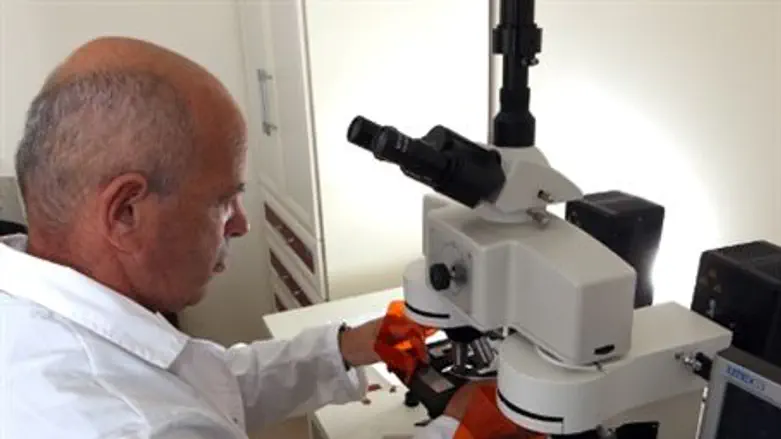
Israeli scientists have figured out a more efficient, “healthier” way to target cancer cells with chemotherapy.
Professor Daniel Wreschner at Tel Aviv University's Department of Cell Research and Immunology is developing antibodies that bind solely to the cancer cells.
The proteins produced by the immune system to fight infection target the cancer cells by binding to a protein called MUC1. The antibodies can be used as an efficient means of delivering medication by depositing a parcel of toxins directly into the center of the diseased cells, Wreschner found.
His discovery showed that this method produced antibodies with a better ability to bind to cancer cells, thus increasing the efficacy of the antibodies and the toxins attached to them in treating the cancer.
The research, reported recently in the journal Cancer Research, was carried out in collaboration with a team that included Dr. Nechama I. Smorodinsky and Professor Itai Benhar of the Department of Molecular Microbiology and Biotechnology, students Edward Pichinuk and Lotem Weiss, and Dr. Daniel b. Rubinstein of the U.S. National Institutes of Health.
Wreschner says the findings, though encouraging, are not yet ready to bring to the clinical treatment stage because more testing is needed. Nevertheless, the advantage to this method has to do with the fact that MUC1 is produced in a higher percentage of cancers.
“People who are not eligible to be treated by antibodies already on the market could, following more research and development, likely be eligible for this one,” he said.